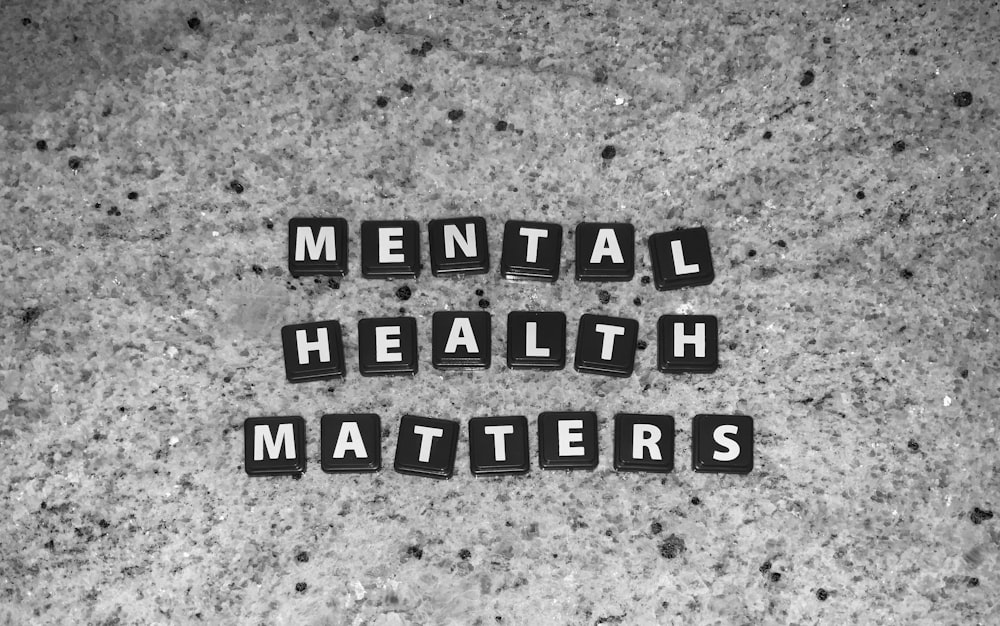Mental Health and Wellness
Mental health and wellness are crucial aspects of our overall well-being. In today's fast-paced and stressful world, it is easy to overlook the importance of mental health. However, it is essential to prioritize mental health just as much as we do our physical health.
Image credits: Marcel Strauß (unsplash)
In this blog post, we will discuss the importance of mental health and wellness, the factors that contribute to poor mental health, and tips for maintaining good mental health.
What is Mental Health?
Mental health refers to our emotional, psychological, and social well-being. It affects how we think, feel, and act, and determines how we cope with stress, make choices, and interact with others. Good mental health is essential for a fulfilling life and can enhance our resilience to face life's challenges.
What is Mental Illness?
Mental illness refers to a range of mental health conditions that affect a person's mood, thinking, and behavior. Mental illnesses can be caused by a combination of genetic, biological, environmental, and psychological factors. Some common mental illnesses include depression, anxiety disorders, bipolar disorder, schizophrenia, and personality disorders. Mental illnesses can affect anyone, regardless of age, gender, or socioeconomic status.
Why is Mental Health Important?
Good mental health is important for several reasons. First, it can enhance our overall well-being and improve our quality of life. People with good mental health are better able to cope with stress, maintain positive relationships, and enjoy fulfilling lives. Second, mental health is essential for our physical health. Poor mental health can increase the risk of developing physical health problems such as heart disease, diabetes, and obesity. Third, good mental health is essential for our productivity and success. People with good mental health are more likely to be productive, creative, and successful in their personal and professional lives.
Factors that Contribute to Poor Mental Health
Several factors can contribute to poor mental health. Some of these factors include:
- Genetic Factors: Mental illnesses can be hereditary and run in families. If someone has a family history of mental illness, they may be at a higher risk of developing a mental health condition.
- Environmental Factors: Environmental factors such as trauma, abuse, neglect, and exposure to violence can contribute to poor mental health.
- Biological Factors: Chemical imbalances in the brain or other physical health problems can also contribute to poor mental health.
- Lifestyle Factors: Unhealthy lifestyle habits such as poor diet, lack of exercise, and substance abuse can also contribute to poor mental health.
Tips for Maintaining Good Mental Health
Fortunately, there are several things that we can do to maintain good mental health. Some of these tips include:
- Practice Self-Care: Self-care refers to any activity that we do to take care of our physical, emotional, or mental health. Self-care activities can include exercise, meditation, reading, taking a bath, or spending time with loved ones.
- Get Enough Sleep: Sleep is crucial for good mental health. Adults should aim for seven to nine hours of sleep each night. Establishing a bedtime routine and avoiding screens before bed can help improve sleep quality.
- Connect with Others: Social connection is essential for good mental health. Spending time with friends, family, or joining a community group can help improve mental health and reduce feelings of isolation.
- Eat a Healthy Diet: A healthy diet is essential for good mental health. Eating a diet rich in fruits, vegetables, whole grains, and lean protein can help improve mental health and reduce the risk of developing mental illness.
- Practice Mindfulness: Mindfulness refers to paying attention to the present moment without judgment. Practicing mindfulness can help reduce stress, anxiety, and depression.
- Seek Professional Help: If you are experiencing symptoms of mental illness, it is essential to seek professional help. Mental health professionals can provide a range of treatments, including therapy and medication, to help manage mental health conditions.
- Manage Stress: Stress is a normal part of life, but excessive stress can lead to poor mental health. Learning stress management techniques such as deep breathing, yoga, or exercise can help reduce stress and improve mental health.
- Set Realistic Goals: Setting realistic goals and breaking them down into manageable steps can help improve mental health and reduce feelings of overwhelm.
- Practice Gratitude: Practicing gratitude involves focusing on the good things in life and being thankful for them. Practicing gratitude can improve mental health and enhance overall well-being.
- Engage in Hobbies: Engaging in hobbies or activities that we enjoy can help improve mental health and reduce stress. Hobbies can include reading, painting, gardening, or playing sports.
Conclusion
Mental health and wellness are essential aspects of our overall well-being. Good mental health can enhance our resilience to face life's challenges, improve our physical health, and increase our productivity and success. Factors such as genetics, environment, biology, and lifestyle can contribute to poor mental health. However, there are several things that we can do to maintain good mental health, including practicing self-care, getting enough sleep, connecting with others, eating a healthy diet, practicing mindfulness, seeking professional help, managing stress, setting realistic goals, practicing gratitude, and engaging in hobbies. By prioritizing our mental health and taking steps to maintain it, we can lead fulfilling, happy lives.

Comments
Post a Comment